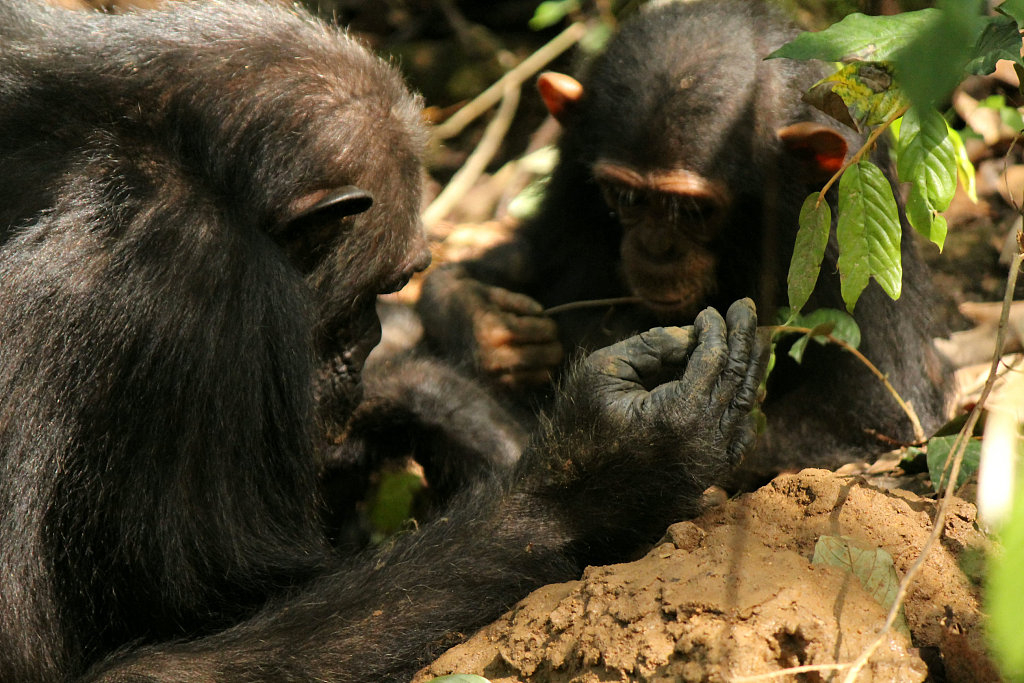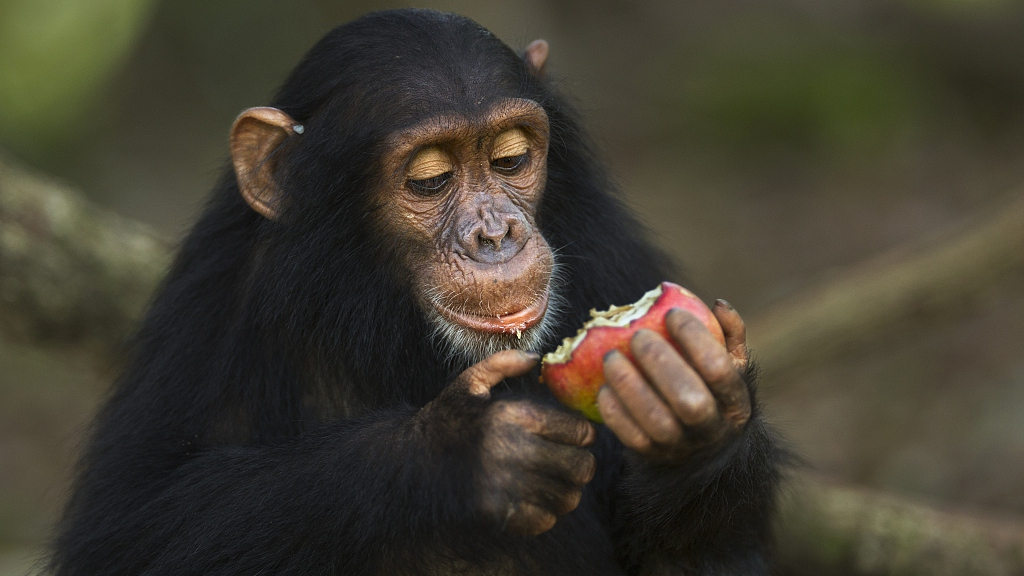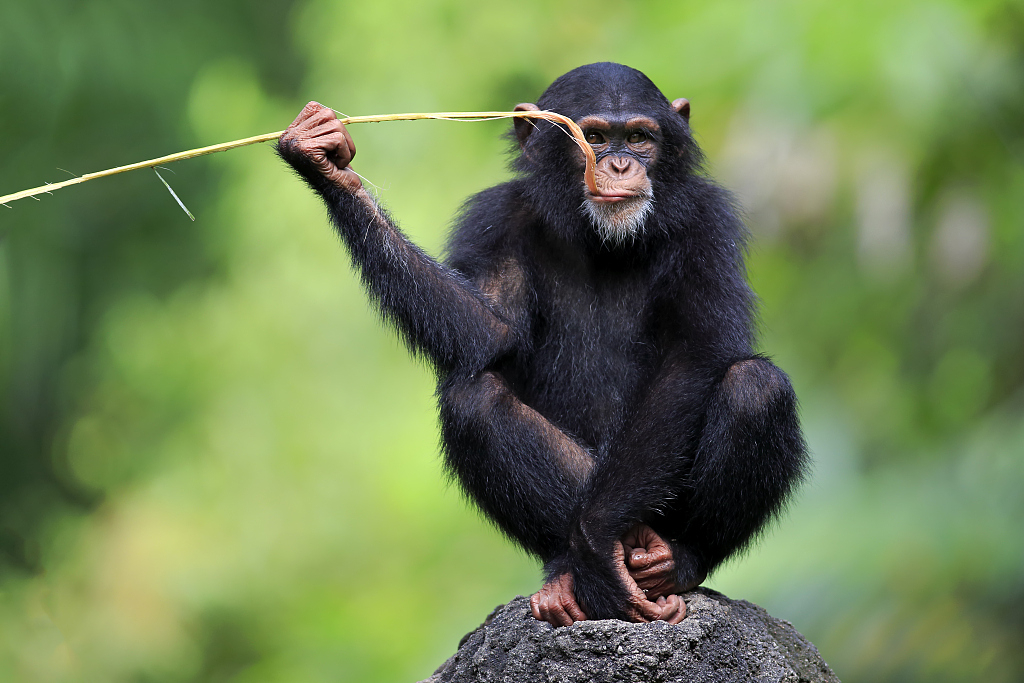
An adult female chimpanzee and her infant fish for termites at Gombe, Tanzania. Chimpanzees learn how to fish for insects and catch other prey by being instructed directly – often by their mothers.
An adult female chimpanzee and her infant fish for termites at Gombe, Tanzania. Chimpanzees learn how to fish for insects and catch other prey by being instructed directly – often by their mothers.
Chimpanzees that use a multi-step process and complex tools to gather termites are more likely to share tools with novices, according to a study published in this week's Proceedings of the National Academy of Sciences in the US.
The study helps illuminate chimpanzees' capacity for prosocial – or helping – behavior, a quality that has been recognized for its potential role in the evolution of human cultural abilities.

Evidence from fossils and DNA sequencing shows that chimpanzees are
humans' closest living relatives.
Evidence from fossils and DNA sequencing shows that chimpanzees are
humans' closest living relatives.
As humans' closest living relative, the chimpanzees are a species of great ape native to the forests and savannahs of tropical Africa.
Understanding how chimpanzee tool traditions are passed on over generations can provide insights into the evolutionary origins of complex cultural abilities in humans, according to the study.

Nearly all chimpanzee populations have been recorded using tools to acquire food and water. The species has also been found creating sharpened sticks to spear small mammals.
Nearly all chimpanzee populations have been recorded using tools to acquire food and water. The species has also been found creating sharpened sticks to spear small mammals.
"Our research shows that the human propensity to assist others in acquiring complex skills may build at least in part upon capacities that we share with our closest living relatives," said Stephanie Musgrave, the paper's first author and assistant professor of anthropology at the University of Miami.
The results from this research indicated that social learning may vary in relation to how challenging the task is. During tasks that are more difficult, mothers can play a more active role, including behaviors that function to teach, according to Musgrave.
(Editor: Li Yunqi.)
(If you want to contribute and have specific expertise, please contact us at nature@cgtn.com)
Source(s): Xinhua News Agency